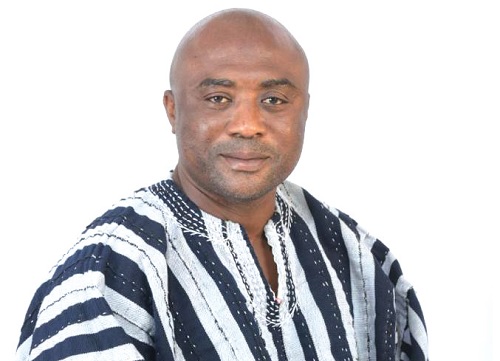
Teacher unions make proposals for parties’ manifestos
Pre-tertiary teacher unions in the country yesterday launched a document containing their demands for incorporation in the manifestos of political parties.
The unions are the Ghana National Association of Teachers (GNAT), the National Association of Graduate Teachers (NAGRAT) and the Coalition of Concerned Teachers (CCT-Ghana).
The 13-page document titled: “Demands to the Political Parties on Education Delivery in Ghana for their Consideration into their Election 2024 Manifestos”, was jointly signed by the General Secretary of GNAT, Thomas Musah, the President of NAGRAT, Eric Carbonu, and the President of CCT-GH, King Awudu Ali.
Thematic areas
The demands of the teachers were classified into five thematic areas for the consideration of the political parties that would contest this year’s general election.
They are: Teacher Unions’ View of Quality Education, School Environment, Free SHS/TVET Policy, Teacher Factor and Teacher Deployment.
The unions said they regarded education as the bedrock of societal and national development since it is the vehicle through which societies and nations provide their people with knowledge, job skills and cultural values to grow economically and for prosperity.
It said the general thinking among Ghanaians was that the type of education relevant and required for the country had so far been, and continued to be elusive; hence parents, civil society and politicians, among others, continued to raise concerns over the quality of education delivery in contemporary Ghana.
“Further, the teacher unions and educational workers are neither considered nor involved in the formulation of educational policies which, in many instances, result in poor learning outcomes,” it said in the abstract.
The unions indicated that it was in the light of those issues that GNAT, NAGRAT and CCT-GH, as major stakeholders in quality public education delivery in Ghana, “put forward this document as our views on quality pre-tertiary education delivery in Ghana to the political parties for consideration and incorporation into their manifestos, noting that 2024 is an election year, and the political parties would come up with manifestos on all aspects of the Ghanaian life, including education.”
Unions’ view
On the first thematic area, it said the teacher unions' view of quality education was that which equipped learners with knowledge, skills and values with which to face the future with ease and confidence and that education should be enquiry-based and adequately public funded to address the needs of the nation.
The priority areas, it said, should be curriculum reform with relevance and inclusiveness and that there should be continuous improvement in the teacher education curriculum to align with modern trends in education and industry, with emphasis on learner-centred pedagogy as proposed by the 2019 Ghana Education Service - National Council for Curriculum and Assessment, with continued in-service training for practising teachers to be abreast of the contemporary delivery strategies and trends.
“Consequently, the unions demanded the use of the First Language (LI) as the medium of instruction, from Kindergarten One to Basic Three, as the key driver to effective teaching and learning,” it said.
On the school environment, it called for the relevant textbooks, workbooks, teaching and learning resources to be timeously supplied in their right quantities and number to engender smooth and effective teaching and learning in schools.
It stressed the need for the prompt release of the capitation grant, more funding for schools with high overhead costs, depoliticisation of the school feeding programme and “provision of free sanitary pads for female learners in the basic schools.”
Free SHS Policy
On the free SHS/TVET policy, the unions called for the review of the programme to enable it to achieve its anticipated results.
They said it should be depoliticised and made a national initiative within the parameters of Article 25 (1) (b) of the 1992 Constitution and that the policy should be supervised by the education directorate and not the Free SHS Secretariat.
With regard to the teacher factor, the unions said the collective agreements for teachers should be fully implemented and conditions of service be improved to attract and retain them and that a scheme of service manual should be provided as a framework to facilitate and guide recruitment, placement, development, career progression and improvement of job performance of teachers.
They also called for the provision of congenial work environments to enable teachers to ply their trade effectively and efficiently; teacher motivation be improved to entice teachers to where they are needed most and be useful, and that allowances for teachers serving in deprived areas be implemented and allowances be paid to attract and retain teachers in specialised subject areas.
On teacher deployment, the unions demanded that teacher deployment be done to match the needs of schools, and (to) ensure equity in teacher supply across the country; manpower audit of education offices and schools be conducted periodically, with emphasis on schools in urban areas, to regulate the number of teachers working in the offices, and excess staff deployed to the classrooms.
They suggested that teachers should be distributed equitably to the urban and rural areas to address the urban-rural inequality in teacher distribution; and called for the use of transfer (reposting) as a means of coercing school heads, union leaders, classroom teachers, and employees who engaged in genuine professional discourse into quietude and submission to cease forthwith.
